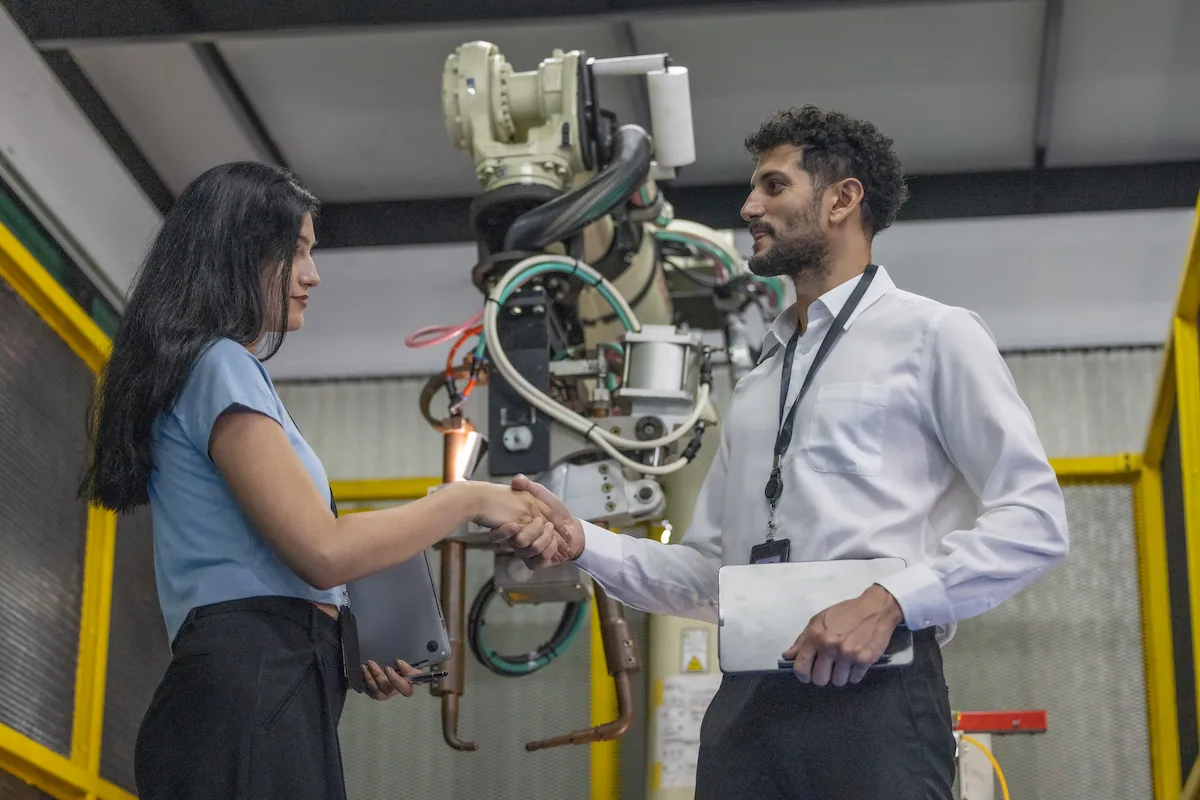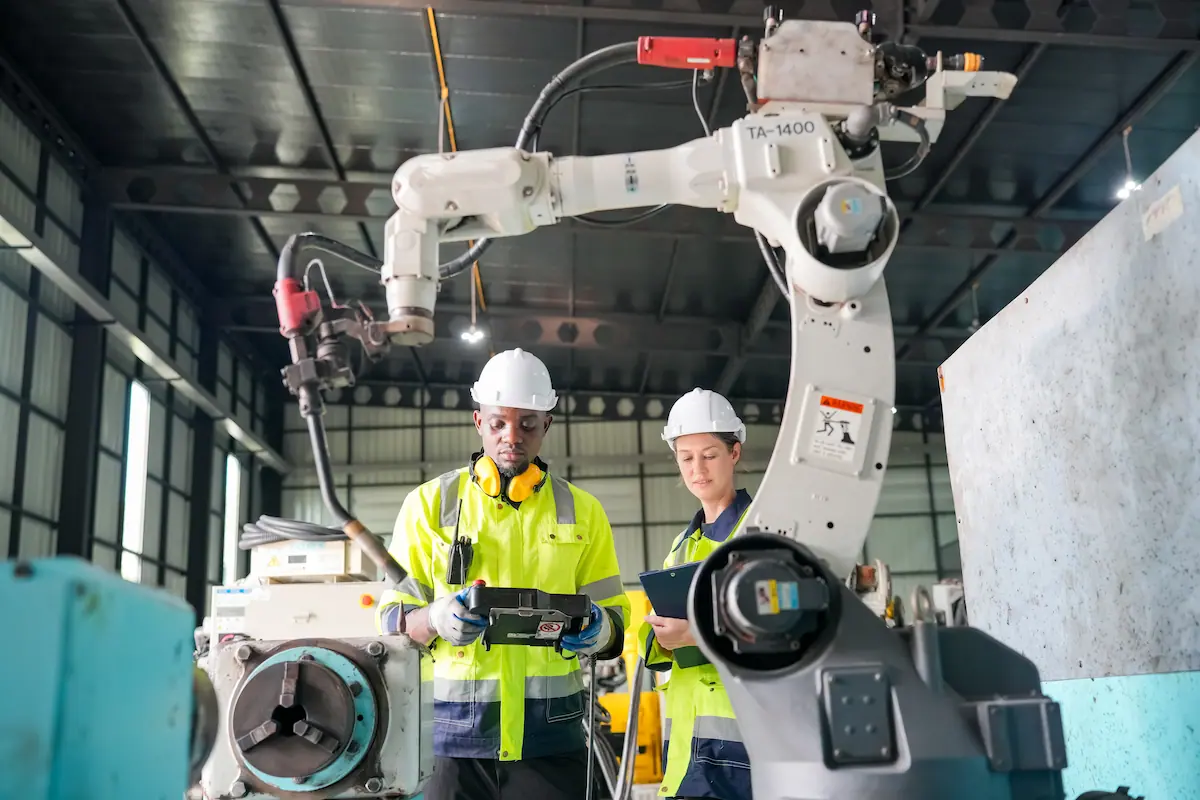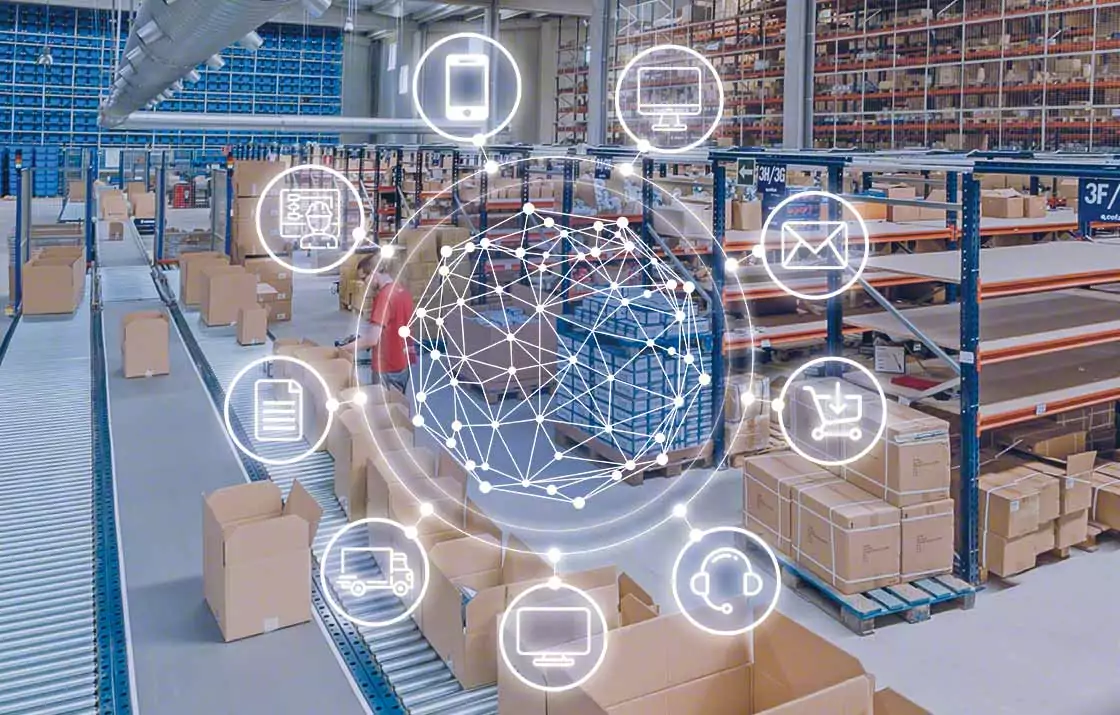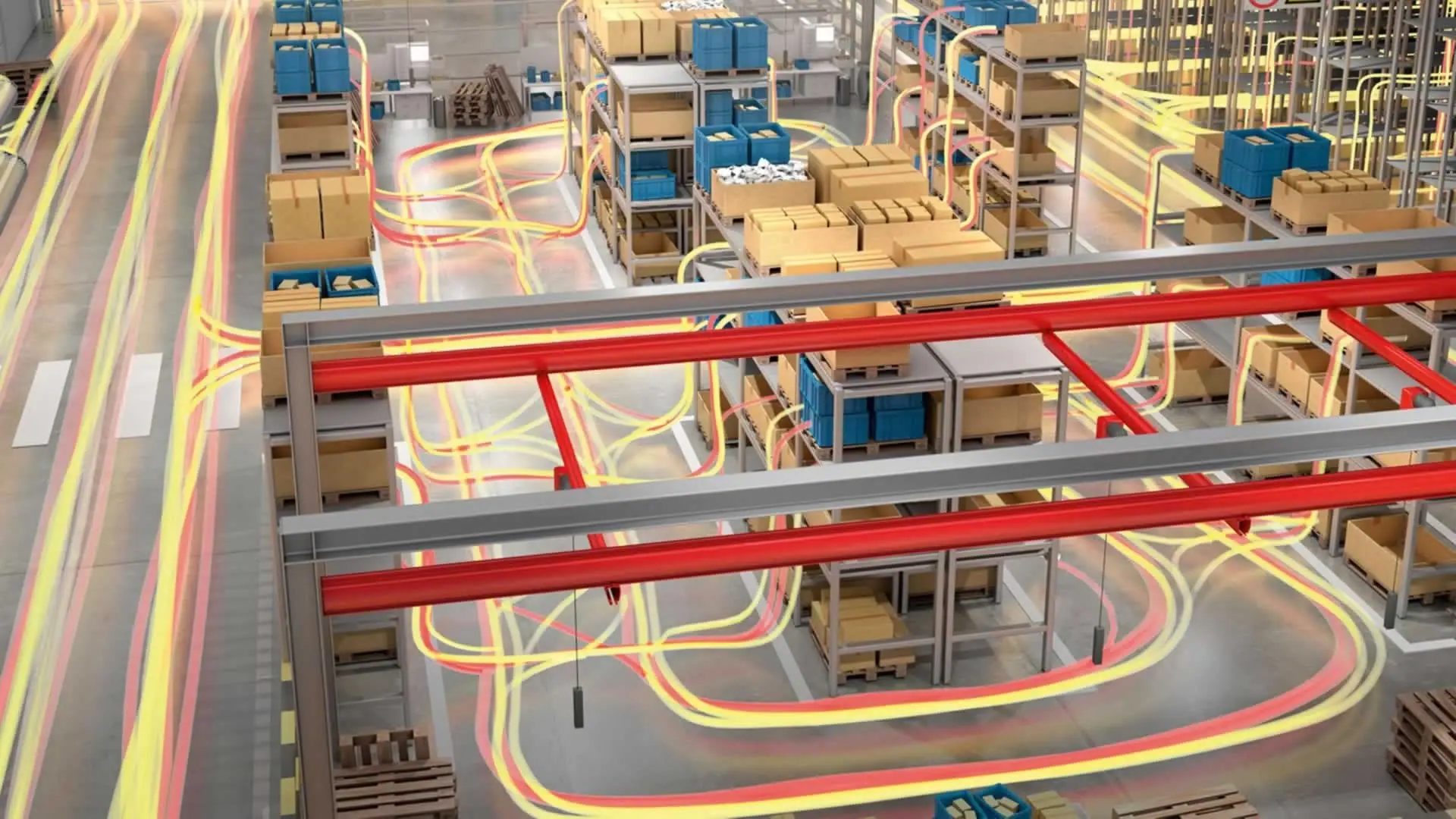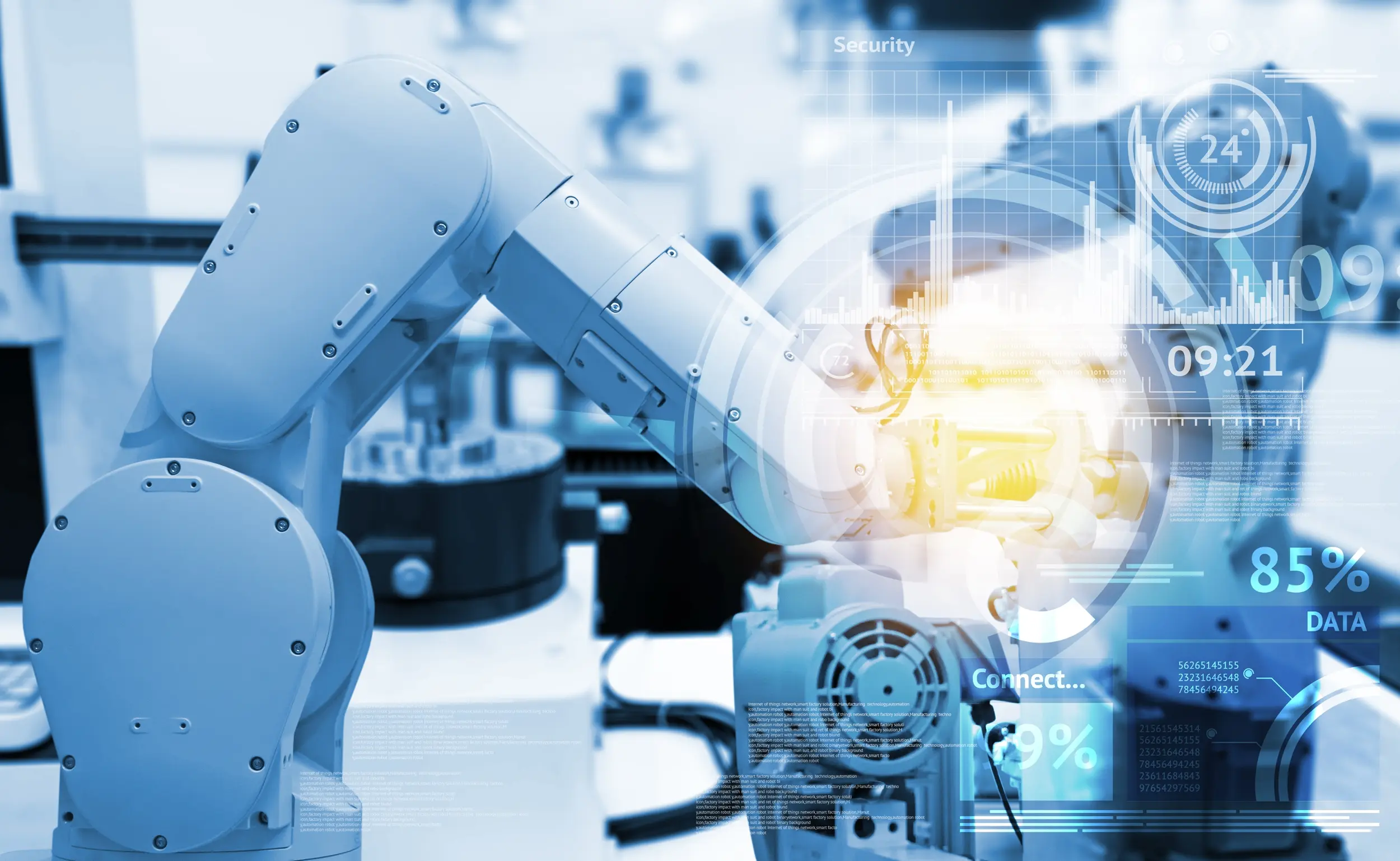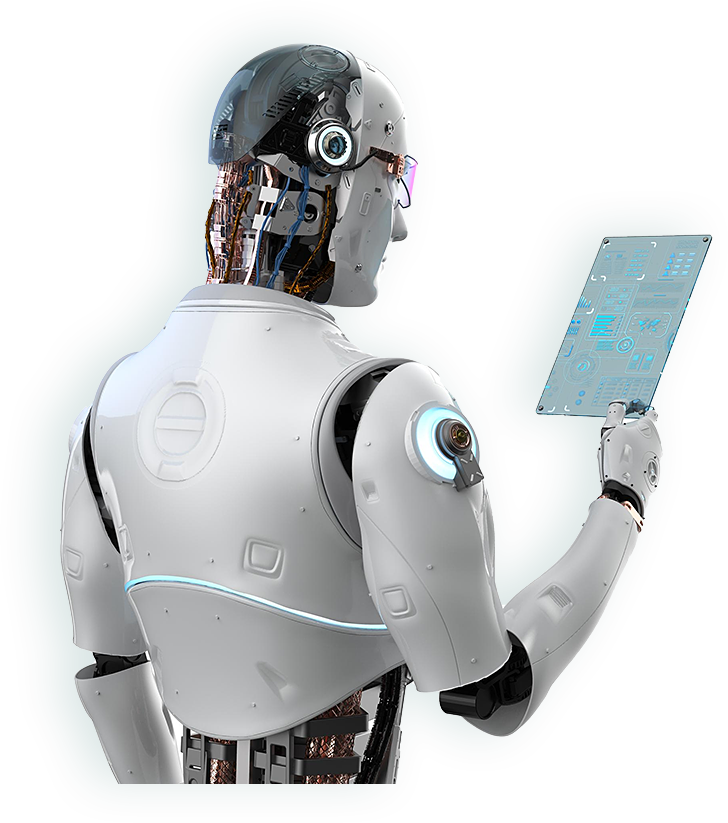I always thought that innovation was one of the most powerful forces that could exist in the world of work. Yet, like many, I was initially sceptical of the idea of replacing manual operations with machines. If you too are wondering whether it is really worth making the leap, let me tell you that automation is not just a solution within the reach of large companies: it is a fundamental change for all businesses, even the smallest ones, that want to keep up with the times. Let me tell you a bit about my experience and why, after trying to implement automation in our small business, I became convinced that there really is no other way to improve quality, safety and competitiveness.
How it all began
When I started working in manufacturing, the idea of 'automating' was something vaguely futuristic. Yet, over time, I realised that it was the key to improvement. The first step was relatively simple: an automated quality monitoring system. If you think this is only a marginal improvement, I assure you it was a radical change. The difference between working manually and automating certain processes was immediate and incredible. Not only were we able to improve efficiency, but also the quality of the product became consistent and error-free.
Then came the next step: the automation of the material flow. Imagine how frustrating it would be if the production of an entire line depended on manual operations such as the transport of raw materials. Automation allowed us to cut waiting times and increase the pace of production, all without stressing employees any more. From that moment on, everything changed. But above all, I saw something that convinced me once and for all: automation is not only about speed, but also about well-being in the workplace.
Why automation really makes a difference
I know what you are thinking: 'Yes, but automation costs money and it is never easy to adapt to new technologies at the beginning'. You're right. I'm not here to tell you that it's all doom and gloom, but there are some things that really are worth keeping in mind. Sometimes, the initial investment may seem high, but the truth is that the benefits are seen over time, and in the long run, automation pays for itself.
1. Efficiency and speed: a leap you didn't expect
The first time I saw a machine do what an entire manual work team used to do, I was impressed. It's not just the speed, but the reliability. The machine does not get tired, it does not make mistakes, it does not stop. Every part of the production runs like a perfect mechanism, without interruptions. It's not just about speed, it's about having total control over all factors. Imagine being able to produce twice as much without increasing the number of people in the factory.
2. Quality without compromise
One of the most difficult challenges in manufacturing is consistent quality. When a product is made by hand, there are variables that can affect the end result. Automation changes the game: machines are able to constantly monitor quality during each and every step of production. The margin for error is greatly reduced. We realised that with automation not only did quality improve, but above all it was guaranteed in every single unit. Production no longer depended on the mood or fatigue of an operator.
3. A safer workplace
We probably don't think enough about safety when we talk about automation, but let me tell you that it is one of the aspects that surprised me the most. Some of the most dangerous tasks an operator has to face, such as handling hazardous materials or working in risky environments, are now performed by machines. Not only has productivity increased, but employees are more relaxed. The quality of work, not to mention their safety, has improved. And that is something that is priceless. When I think of the positive changes it has brought, I am really happy that I made this decision.
4. The value of time: how to save without losing quality
Time is money, and the faster you can produce, the better. In addition, automation has enabled us to save resources not only in terms of time, but also in terms of materials. An automated process reduces waste and makes everything more precise. We found ourselves working with less waste, which not only saved us money, but also had a positive impact on the environment. Operational efficiency has been improved, which has resulted in greater competitiveness in the market.
How do I get started?
I know that the idea of automating may seem complex, but in reality you don't have to take a leap of faith. You don't have to automate everything right away. You can start with small steps, just like I did. My advice? Start with a pilot phase. Choose a process, even a simple one, that can be improved through automation. Once you see the benefits, you can plan the expansion.
1. Understanding your needs
First of all, you have to understand what you want to achieve. What is your goal? Do you want to reduce production time? Improve quality? Reduce operating costs? Defining these goals will help you choose the right technology and plan a path that makes sense for you. And don't worry, there is plenty of technology designed for small and medium-sized enterprises, so you don't have to become a robotics expert to take the first step.
2. Training and support
Don't expect to do everything yourself. Staff training is crucial. It is important that everyone is ready to handle the new systems and that there is always technical support ready to solve any problems. But this does not mean that automation eliminates jobs: rather, it frees up time for employees, who can concentrate on more complex and creative tasks.
3. Investing in the right technology
The initial investment may seem like a big challenge, but consider the longevity and benefits. Technology continues to evolve, and what may seem expensive today may turn out to be the best investment of the future.
My conclusion: automation is not just an option, it is a necessity
When I look at my experience, I can say without a doubt that automation was one of the best decisions we made as a company. It has allowed me to improve quality, increase efficiency and, above all, protect my employees from unnecessary risks. It is not always easy, but the results speak for themselves. Automation allows you to take the leap, to face the future with more confidence and to stay one step ahead of the competition.
Don't wait any longer. If your company has not yet started down the automation path, now is the time to act. Every day you wait is a missed opportunity for improvement and optimisation. If you don't know where to start, start with a consultation or a small trial run on one of your processes. Don't be afraid to take the first step. And if you have questions or doubts, don't hesitate to ask. You are not alone in this journey.
It is time to evolve. Invest in the future of your company, and see where it takes you.
3. Information Security: An Imperative for the Future
Cyber security is an issue that can no longer be ignored in the robotics industry. With the ever-increasing integration of autonomous robots into corporate operations, the risks associated with protecting sensitive data and information are also increasing. Robotic systems are increasingly connected to the corporate network and thus vulnerable to cyber attacks.
Therefore, in 2025, companies will increasingly focus on protecting their robots and operations. Security solutions must evolve rapidly to deal with increasingly sophisticated threats. A major concern is data protection, which can be compromised by cyber espionage attacks or theft of sensitive information.
Another important aspect of security is supplier management. Robotics companies will need to adopt advanced security models, such as zero-trust, which implies continuous verification of all supplied hardware and software components. As the adoption of the Internet of Things (IoT) and connected robots increases, it becomes critical to ensure that all communications between devices are secure, using advanced encryption techniques.
Furthermore, post-quantum cryptography is an emerging technology designed to protect systems against potential risks from quantum computers, which could threaten current cryptographic methods.
4. Simplification and Standardisation: Robotics for All
Another crucial aspect for the future of robotics is the simplification of technologies. Until now, the adoption of robotics solutions has often been complex and expensive. However, in 2025, robotics companies are expected to focus on standardised solutions that are easy to integrate. Standardisation of technologies will enable companies to reduce initial costs and implementation time, making robotics accessible to more companies, including small and medium-sized enterprises.
The creation of plug-and-play solutions is another important step in this direction. Modular and easy-to-configure robots will allow companies to choose and implement the technology that best suits their needs, without the need for complex customisation. Simplicity in design and use will reduce the barrier to entry, allowing more companies to adopt automated solutions quickly and cost-effectively.
Conclusions
In 2025, robotics will continue to be a driving force in the world of industrial automation. Intelligent systems, adaptability, interoperability, and an increasing focus on safety and ease of use will be the pillars that define the future of this industry. As technology advances, robotics will become an increasingly important asset for companies that want to remain competitive in a rapidly changing world.
Companies must prepare for a continuous transformation, in which automation and artificial intelligence will play central roles. Adapting to these trends will not only enable companies to improve operational efficiency, but also to be ready to face future challenges with greater resilience and flexibility.
Discover how robotics can transform your business: join the automation revolution today. Contact us for a personal consultation and discover the robotics solutions that best suit your needs.

